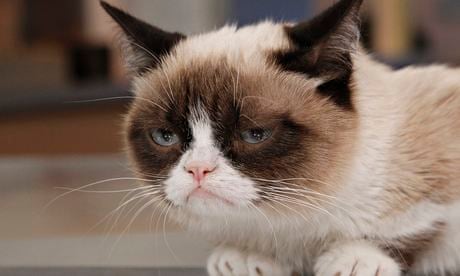Largely driven by the runaway success of BuzzFeed, the listicle continues its indomitable stomp across the online media landscape, with the trend being adopted by everyone from the old school broadsheets, to established online news titles.
Clearly, "doing a BuzzFeed" has been deemed to be the digital future for many online organisations who are so keen for their slice of the web traffic pie that they are turning away from reproducing traditional editorial styles online and instead opting to publish image led listicles easily comprehended by even the most anaesthetised office worker.
Recently, Roy Greenslade, in his weekly blog for Media Guardian, described how Trinity Mirror had launched its new digital first strategy, which means in essence that the entire focus of newsrooms throughout the day will be on posting copy online. For Trinity Mirror this has meant publishing a large number of daily listicles which have contributed towards a record 119m page views on its regional sites in February alone, a year on year rise of 72%.
What this evolution of online content means for the future of quality journalism is an argument for another day, but for now I want to address the implications the rise of the listicle has for intellectual property.
By and large the established news platforms, like Trinity Mirror for example, are well versed in IP law, but in the cavalier world of the new age media publishers, the topic of intellectual property is not necessarily held in such high regard. And in many cases little thought is given to the original ownership of the images and memes published.
Many say that some online publisher's failure to cite the sources for its listicles is simply an example of bad netiquette, but in essence, it's intellectual property theft in its purest form.
But the question is does the internet care? In a word, no.
In an interview with The Atlantic, BuzzFeed's editor, Jonah Peretti, comments: "I would love if every image contained some secret metadata and a way to license that image … but the practical reality is that it is pretty challenging, particularly in the web culture of animals and the images that spread on Pinterest and Tumblr."
And so Peretti makes a fair use argument, a particularly cloudy legal term.
The Atlantic article references Wikipedia to explain the fair use term: "To justify the use [of copyrighted material] as fair, one must demonstrate how it either advances knowledge or the progress of the arts through the addition of something new. A key consideration is the extent to which the use is interpreted as transformative, as opposed to merely derivative."
And it is this issue of transformation that is the crux of Peretti's argument as to why BuzzFeed is not violating copyright law, claiming that BuzzFeed's listicles are transformative, because they storify the images, sequencing and framing them in a different way to their original context, thereby transforming the nature of the photo.
Some of you may be raising your eyebrows at Peretti's decidedly self-serving take on the serious topic of intellectual property. However, in an arena with as many shades of grey as that of fair use, you can hardly blame him.
It is the listicle creators who are having the last laugh. After all most artists, photographers and other creative types do not have the means to pay for basic legal advice, let alone launch costly emergency injunction applications. Even if they can afford to take such action, by the time an artist, or copyright owner, identifies an infringement, issues an application for a takedown order and allows the legal process to take its course, these websites have clocked in several million more page views.
Wayne Beynon is an IP lawyer at Capital Law
To get weekly news analysis, job alerts and event notifications direct to your inbox, sign up free for Media Network membership.
All Guardian Media Network content is editorially independent except for pieces labelled 'Advertisement feature'. Find out more here.

Comments (…)
Sign in or create your Guardian account to join the discussion